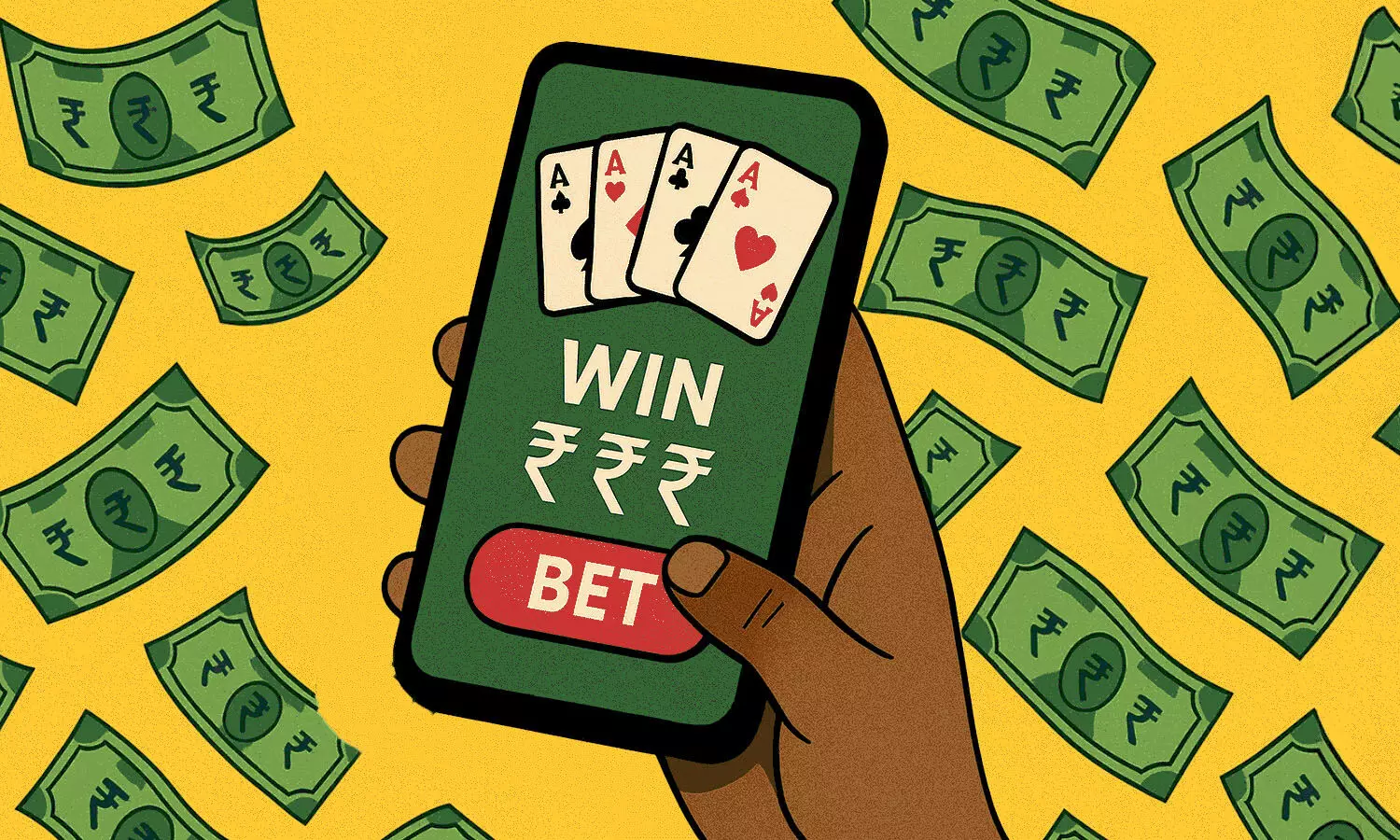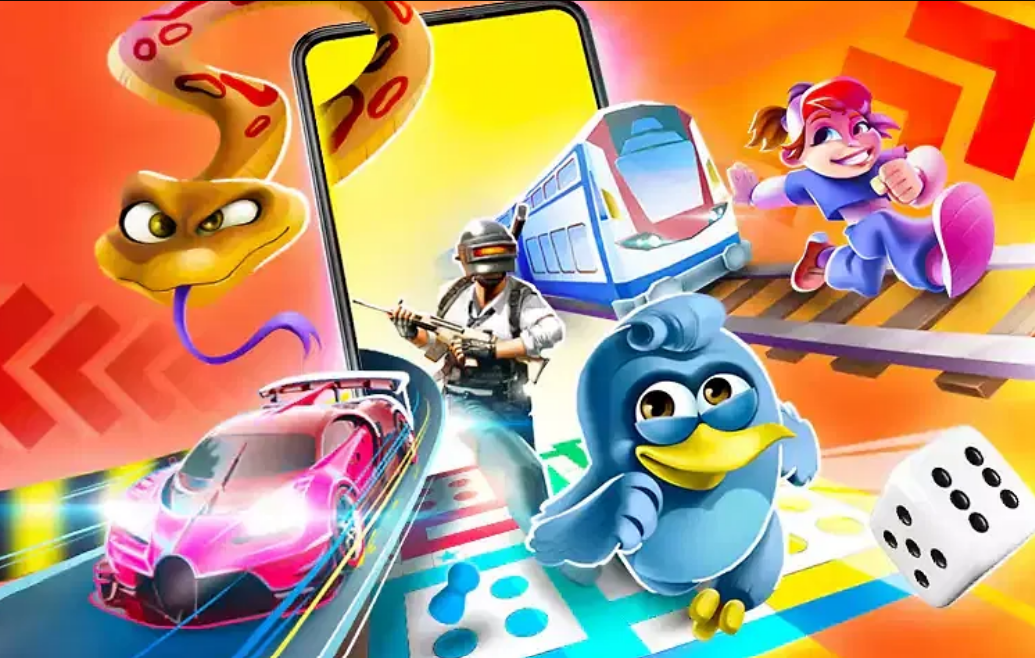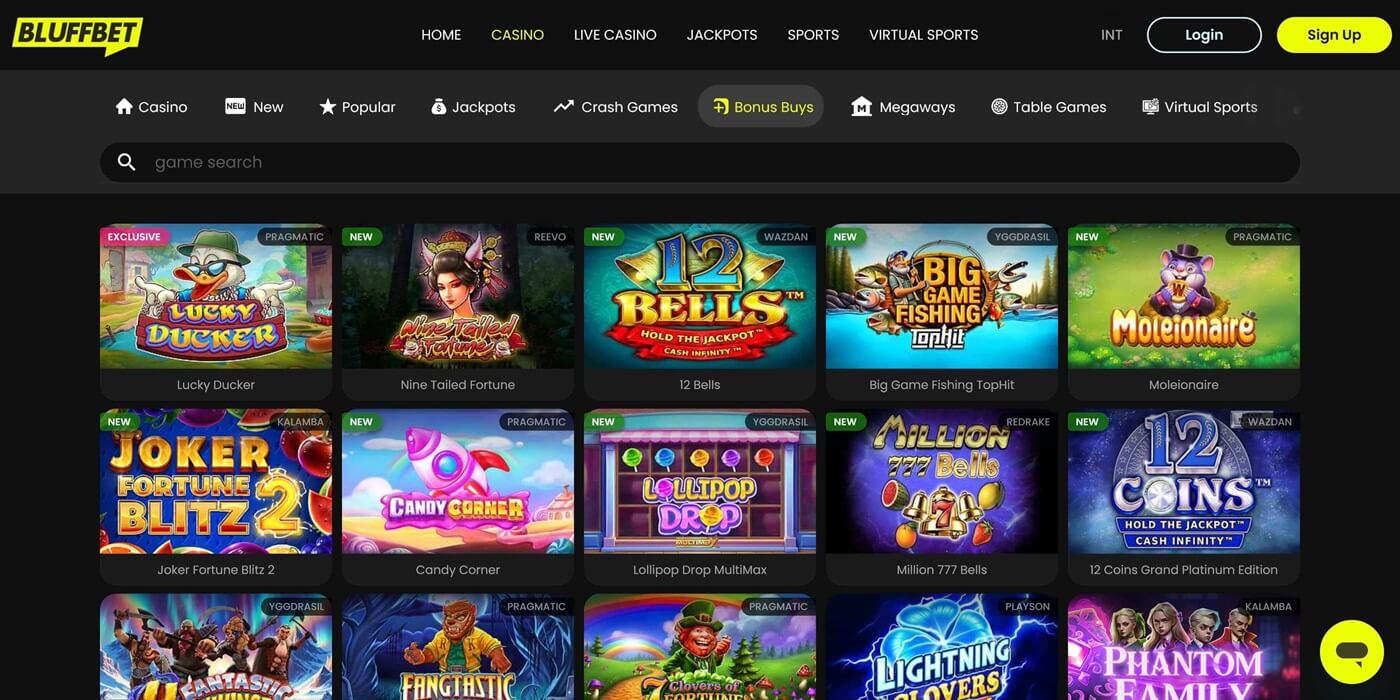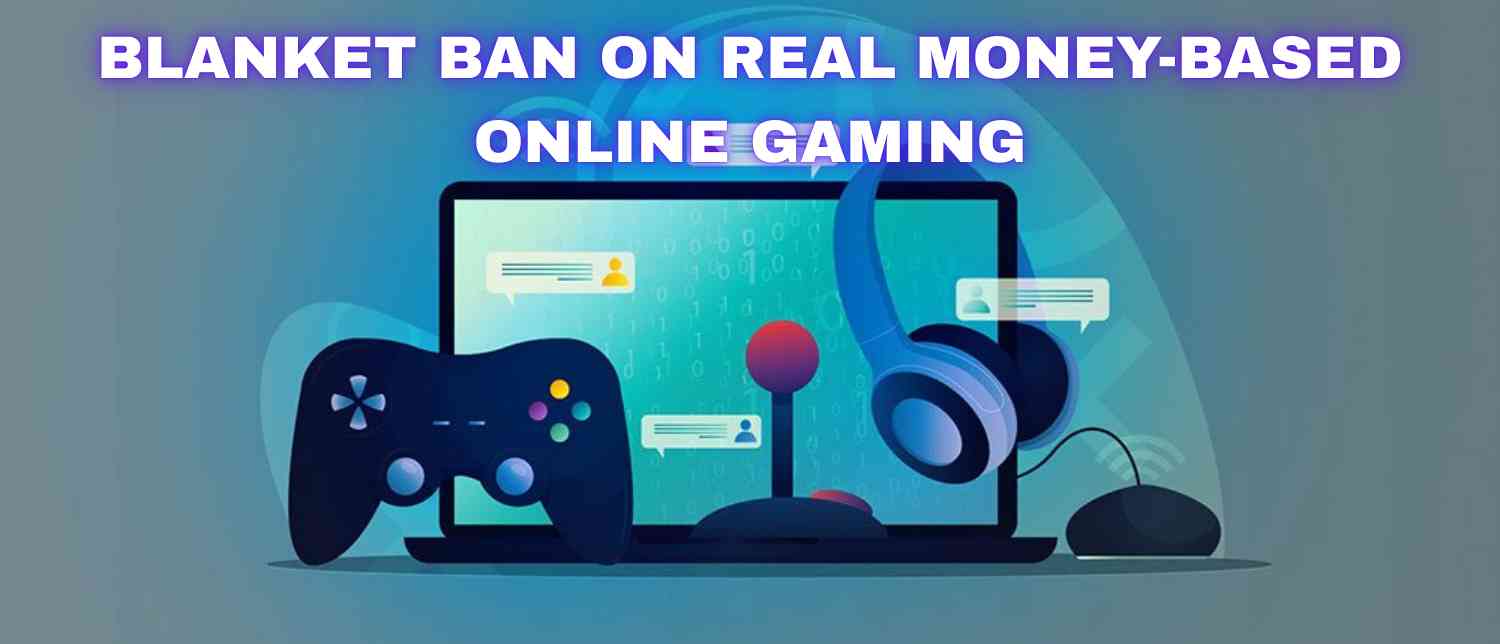India’s booming online gaming industry is at a crossroads. The Union government, led by Prime Minister Narendra Modi, has introduced the Promotion and Regulation of Online Gaming Bill, 2025, which proposes a blanket ban on all money-based online games. If passed, the law could effectively wipe out the real-money gaming (RMG) sector, a multi-billion-dollar industry that has drawn foreign investment, created thousands of jobs, and attracted nearly 500 million players across the country.
While the government argues that the bill is necessary to curb addiction, financial ruin, and money laundering, the gaming industry warns that it will strike a “death knell” for one of India’s fastest-growing digital sectors. The debate has triggered intense discussions about regulation, taxation, jobs, digital sovereignty, and the future of e-sports.

What Are Online Real-Money Games (RMG)?
Online real-money games (RMGs) are digital platforms where players pay to participate in games and stand a chance to win cash rewards. Popular examples include fantasy sports (Dream11, My11Circle, KheloFantasy), skill-based games like rummy and poker, and even casual gaming platforms like WinZO and Games24x7 that allow users to stake money.
The bill defines any game involving an entry fee, stake, or monetary deposit as an “online money game,” regardless of whether the game is based on skill or chance.
By contrast, e-sports competitive gaming tournaments like BGMI, PUBG, League of Legends, and Call of Duty remain unaffected. The bill distinguishes e-sports and free-to-play social games (which rely on in-app purchases or ads) from RMGs. In fact, the government has expressed its intention to promote e-sports and digital game development, while outlawing money-based formats.
Popular RMG platforms include:
-
Dream11
-
My11Circle
-
Khelo Fantasy Live
-
WinZO
-
Games24x7
-
Junglee Games
-
GamesKraft
-
99Games
Unlike casual games or esports, these platforms involve monetary stakes. According to industry estimates, 86% of India’s online gaming revenues currently come from real-money formats, making them the backbone of the sector.
What the Draft Bill Proposes
The Promotion and Regulation of Online Gaming Bill, 2025, cleared by the Union Cabinet, proposes the most sweeping crackdown yet on RMG platforms. Key provisions include:
-
Blanket Ban: All money-based online games whether of skill based or chance based will be prohibited.
-
Any game with an entry fee or monetary deposit will be treated as an “online money game.”
-
Advertising Prohibition: Promotion, endorsements, and advertisements of such games will be banned.
-
Financial Restrictions: Banks, NBFCs, and payment gateways will be barred from processing RMG-related transactions.
-
Heavy Penalties:
-
Up to 3 years in prison and ₹1 crore fine for hosting such games.
-
Up to 2 years in prison and ₹50 lakh fine for promoting them, including influencers and celebrities.
-
In short, the bill seeks to shut down every revenue stream of RMG, cutting off payment systems, advertising, and user access.
The Bill leaves little room for ambiguity: if money is involved in gameplay, it falls under the ban. Free-to-play or subscription-based games (where users pay a fixed fee but no wagering occurs) will continue to be allowed.

Why Is the Government Pushing for a Ban?
The government has cited psychological, financial, and social harm as its key motivations.
-
Addiction and Mental Health Risks
-
The Ministry of Electronics and Information Technology (MeitY) noted the “immersive and addictive nature” of money-based games.
-
Clinical studies have shown a link between prolonged gaming and anxiety, depression, sleep disorders, and compulsive behavior.
-
Children, adolescents, and young adults are seen as particularly vulnerable.
-
-
Financial Losses and Debt
-
Families have reported cases of players falling into crippling debt due to compulsive gaming.
-
Many users are lured by small entry stakes but end up losing substantial amounts over time.
-
-
Money Laundering and Illegal Betting
-
Authorities suspect that some platforms have been misused for hawala transactions and money laundering.
-
Over 1,400 illegal betting and gambling sites have already been blocked since 2022.
-
-
Precedent in States
-
States like Tamil Nadu, Karnataka, and Telangana have already imposed restrictions on money-based games, citing public interest.
-
A national law, the government argues, would create uniformity and close loopholes.
-
As one government official put it:
“Skill or chance doesn’t matter — if money is involved, it’s gambling. This bill protects youth, curbs money laundering, and closes loopholes exploited by offshore operators.”
In short, the government views RMGs as a social hazard, akin to alcohol and tobacco, and believes that prohibition is the only way to protect vulnerable citizens.
What Is NOT Banned?
Interestingly, the bill encourages esports and casual gaming.
-
Esports (electronic sports) like BGMI, League of Legends, PUBG, and Call of Duty are competitive but non-monetary in terms of direct stakes. They will be promoted through regulatory frameworks.
-
Online social games that monetize via in-app purchases or ads (but don’t offer cash rewards) are exempt.
-
Subscription-based games where players pay a fixed fee but cannot wager money remain legal.
This distinction signals the government’s intent to nurture esports and game development while treating money-based games like gambling.
_1755676157.avif)
Industry Impact: A $9 Billion Opportunity at Risk
If passed, the ban would devastate India’s online gaming industry.
-
Market Value: Currently worth $3.7 billion, the industry was projected to reach $9.1 billion by 2029.
-
Revenue Source: Nearly 86% of revenue comes from money-based formats. A ban would wipe out this financial lifeline overnight.
-
Tax Contributions: The sector contributes ₹20,000–25,000 crore annually in GST and taxes. Offshore operators, by contrast, pay nothing.
-
Jobs at Stake: More than 200,000 people are employed directly or indirectly, across roles in engineering, design, marketing, and customer service.
-
Foreign Investment: Between 2021–2022 alone, Indian gaming startups attracted $2 billion in FDI. Industry leaders say the unpredictability of policy will scare away global investors, hurting not just gaming but India’s broader $1 trillion digital economy goal.
Market leaders like Dream11, Games24x7, WinZO, My11Circle, Junglee Games, and GamesKraft, all of which dominate the RMG space, are now staring at an existential crisis.
Industry Pushback: “Regulation, Not Prohibition”
Gaming industry bodies, including the All India Gaming Federation (AIGF), the Federation of Indian Fantasy Sports (FIFS), and the E-Gaming Federation (EGF), have strongly opposed the bill.
Their key arguments:
-
Players Will Move to Offshore Sites
-
A ban will not stop Indians from playing money games; it will only push them to unregulated foreign operators.
-
These sites pay no taxes, offer no consumer protections, and often use predatory designs.
-
-
Economic Fallout
-
A blanket ban would kill lakhs of jobs, destroy a legitimate tax-paying industry, and derail India’s $1-trillion digital economy goal.
-
The loss of GST from offshore gambling operators is conservatively estimated at $4 billion annually.
-
-
Constitutional Concerns
-
Courts, including the Supreme Court, have repeatedly ruled that skill-based games do not amount to gambling.
-
A blanket ban could violate Article 19(1)(g) (right to trade), Article 14 (equality before law), and Article 19(1)(a) (freedom of expression).
-
-
Need for Progressive Regulation
-
Instead of prohibition, industry leaders argue for a regulated framework that distinguishes games of skill from games of chance.
-
Such a framework could include licensing, age-gating, self-exclusion tools, and mandatory grievance redressal systems.
-
In their words:
“What India needs is regulation, not a ban. A smart framework that protects users while enabling innovation and economic growth.”
“A blanket ban will push crores of legitimate players into the hands of fly-by-night operators. Instead of protecting Indians, it will harm them,” an AIGF representative said.

The GST Question
Even before the ban, the industry has been under severe tax pressure.
-
Since October 2023, a 28% GST has been levied on the full face value of deposits.
-
From FY 2024–25, a 30% tax on net winnings under Section 115BBJ also applies.
-
The government is considering increasing GST further to 40%, classifying RMGs alongside sin goods like alcohol and tobacco.
Notably, the GST regime does not distinguish between games of skill and chance a long-standing grievance of e-sports and fantasy sports operators. While the new bill introduces such a distinction, it remains unclear if tax laws will be updated accordingly.
Market Impact: Billions at Stake
-
Valuation hit: India’s $25 billion gaming sector faces collapse if 86% of its revenue stream (RMG) is outlawed.
-
Growth freeze: The industry, growing at nearly 20% CAGR, could see growth stall overnight.
-
Tax revenue loss: Experts estimate India could lose $4+ billion annually in GST as players shift to offshore sites.
-
Jobs wiped out: At least 1 lakh jobs across engineering, design, animation, and content creation could vanish.

From Regulation to Prohibition
The proposed law marks a decisive policy shift:
-
Past approach: Tax, regulate, and block illegal betting sites.
-
Now: Total prohibition on money-based formats.
Authorities have already blocked over 1,400 illegal betting sites since 2022, but industry leaders say prohibition will only strengthen these operators further.
Govt vs Industry: Two Sides of the Debate
At the heart of the debate lies one question: Should India regulate online money games, or ban them outright?
-
Government’s Stand: Online RMGs fuel addiction, debt, and social distress. Whether skill or chance, money gaming is gambling. A ban is necessary to protect the youth and curb money laundering.
-
Industry’s Stand: A ban will kill a ₹25,000 crore tax-paying sector, destroy jobs, chill foreign investment, and push crores of Indians toward unsafe offshore operators. Progressive regulation not prohibition is the way forward.

What Happens Next?
The Bill has been listed for introduction in the Lok Sabha on August 20–21, 2025. If cleared by both Houses of Parliament, it will mark a decisive shift from “tax and regulate” to “prohibit and enforce.”
While the government insists this is a step to protect citizens, the industry sees it as a death knell. Lobbying efforts are already underway, with industry leaders seeking urgent intervention from the Home Minister and urging the adoption of a balanced framework instead of a blanket ban.
A Defining Moment for India’s Digital Economy
The proposed ban on online real-money games represents a defining moment for India’s digital economy. On one hand, the government is justified in addressing addiction, debt traps, and potential misuse of platforms for illegal activities. On the other hand, a blanket ban risks wiping out an industry that creates jobs, pays significant taxes, attracts foreign investment, and engages nearly 500 million players nationwide.
Whether India chooses prohibition or progressive regulation will decide not just the future of gaming, but also its global leadership in the digital space. A balanced middle path, one that safeguards users while nurturing innovation, may be the only way to reconcile these competing priorities.
With inputs from agencies
Image Source: Multiple agencies
© Copyright 2025. All Rights Reserved. Powered by Vygr Media.























